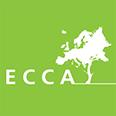Worldwide, there are few young people participating in public decisions around climate change. These same youngsters are disproportionately affected by disasters and climate change hazards: they have limited voices in the decisions and policies related to disaster risk reduction, climate change adaptation, and community resilience despite calls for their empowerment as important stakeholders in these issues. In addition, young people will grow to fill leadership roles in decision-making organisations, while inheriting the consequences of climate change, policies and actions that are co-constructed today. Actively engaging and empowering children and young people to address the complex problems of climate change is a critical step to achieving resilience at local, regional, and national levels.
To reflect this, ECCA 2019 aims to meaningfully and creatively engage young people and give them a voice to express themselves about climate change and possible responses.
A short video was co-produced with and about young people and their views on climate change. Students of Antonio Arroio Art High School and St. Julian’s School, Lisbon were interviewed about their perceptions of climate change responses. The process was guided by the director Johanna Bentz and climate change researcher Julia Bentz. The film project aims to raise awareness and climate change engagement, and will be distributed through social media. It is the first collaboration of the two sisters.
Johanna Bentz is an award-winning film director, whose films are screened at international festivals and on TV. Since graduation as director for documentary films (2012, Filmakademie Baden-Württemberg, Germany) she works as a freelance author and director for radio and film in Berlin. Recent works include Bella Palanka, documentary TV; GIANT, short children’s animation, cinema; and The seduction artists, documentary, TV.
Julia Bentz has a background in interdisciplinary social sciences (MPhil. Development Studies, University of Vienna; PhD Economics, University Azores, Portugal, 2015), and extensive experience in researching the interactions between social and ecological systems in a variety of research fields. Within her current project, Art for Adaptation, her focus is on the question of how art and creative practices can contribute to broader, deeper and more inclusive perspectives on adaptation to climate change.

